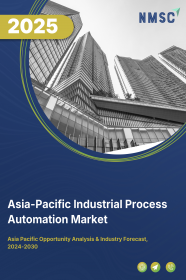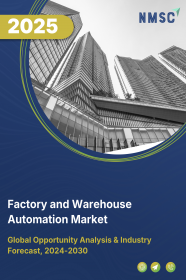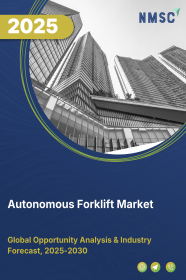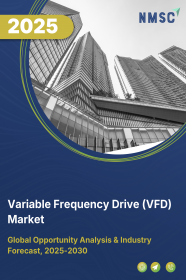
Asia-Pacific Industrial Process Automation Market by Component (MES [Hardware, Software, Services]; DCS [Hardware, Software, Services]; PLC [Hardware, Software, Services]; SCADA [Hardware, Software, Services]; Field Instruments; Industrial Robots; Human Machine Interface; Industrial PCs; Process Analyzers& Drives) and by End User (Oil & Gas, Chemicals & Refining, Energy & Power, Pulp & Paper, Metals & Mining, Pharma, Others) – Global Opportunity Analysis and Industry Forecast, 2025–2030.
Industry: Semiconductor & Electronics | Publish Date: 08-Oct-2025 | No of Pages: 210 | No. of Tables: 142 | No. of Figures: 87 | Format: PDF | Report Code : SE988
Industry Outlook
The Asia-Pacific Industrial Process Automation Market size was valued at USD 20.37 billion in 2024 and is projected to grow to USD 22.46 billion by 2025. Additionally, the industry is expected to continue its growth trajectory, reaching USD 32.43 billion by 2030, with a CAGR of 8.06% from 2025 to 2030.
The industrial process automation market in Asia-Pacific is being driven by the rapid adoption of robotics in manufacturing, government investments in technology industries, and the rising use of automation in the chemical sector. Robotics enhances precision, efficiency, and scalability, while government initiatives support modernization and competitiveness, and chemical producers increasingly rely on automation for safety, compliance, and productivity. However, high upfront costs remain a restraint, particularly for small and medium-sized enterprises that struggle with capital allocation for equipment and integration. Looking ahead, the integration of AI and ML offers strong opportunities by enabling predictive maintenance, improving decision-making, and driving innovation, positioning the region for long-term automation growth.
Robotics Adoption Accelerates Manufacturing Automation
The adoption of robotics in the manufacturing sector is a major driver of industrial process automation in the Asia-Pacific. Robotics enables manufacturers to automate assembly, material handling, and quality inspections, ensuring higher precision, efficiency, and cost optimization. By reducing human error and enhancing scalability, robotics strengthens production capabilities and supports the growing demand for reliable and streamlined operations across industries.
Government Investments Fuel the Asia-Pacific Industrial Process Automation Market Expansion
Government investments in technology industries across the Asia-Pacific significantly accelerate the adoption of advanced automation solutions. These initiatives foster innovation, enhance operational efficiency, and enable industries to modernize production systems. By prioritizing technological advancements, governments help industries reduce costs, improve productivity, and transition toward competitive, globally integrated automation practices.
Chemical Industry Drives Automation Adoption
The chemical industry in the region is increasingly adopting industrial process automation to address the need for precise control, safety compliance, and efficiency in complex manufacturing environments. Automation solutions reduce operational risks, ensure regulatory compliance, and optimize workflows, allowing chemical producers to improve productivity while lowering errors. This trend highlights the growing reliance on advanced technologies to support long-term market growth.
High Upfront Costs Restrain the Asia-Pacific Industrial Process Automation Market Growth
Despite strong demand drivers, substantial upfront costs associated with industrial process automation hinder market expansion. Small and medium-sized enterprises, in particular, face challenges in allocating sufficient capital for equipment, integration, and maintenance, slowing adoption rates in the region.
AI and ML Integration Unlocks Future Growth in Industrial Process Automation
The integration of artificial intelligence (AI) and machine learning (ML) presents a major opportunity for the industrial process automation market. These technologies enable predictive maintenance, streamline repetitive tasks, and optimize production with minimal human input. By improving efficiency, quality control, and decision-making, AI and ML drive greater productivity, precision, and innovation across industries.
China Holds the Dominant Market Share in the Asia-Pacific Region
The expansion of the oil sector in the country fuels market growth due to the increasing demand for advanced technologies to improve operational efficiency and safety. The growing oil extraction and refining activities require streamlined processes, reduced downtime, and enhanced worker safety, leading to the adoption of automation solutions across the sector. According to the latest report published by the Energy Institute - Statistical Review of World Energy in June 2025, China’s oil production rose from 2,431 TWh in 2023 to 2,476 TWh in 2024. This growth in oil production underscores the crucial role of automation solutions in meeting increasing operational demands and ensuring safety, thereby driving market expansion.
Japan to Witness Substantial Growth in the Asia-Pacific Industrial Process Automation Market
The rising investment in intelligent robotics is accelerating the adoption of automation technologies in Japan, as industries increasingly seek advanced solutions to enhance manufacturing and logistics operations. Growing demand for efficiency in tasks such as palletizing and bin picking is driving the deployment of robotics platforms, fostering technological advancements that improve productivity and enable scalable automation across multiple sectors. At the same time, the widespread integration of automation solutions reflects industries’ focus on boosting efficiency and maintaining product quality. This momentum underscores Japan’s growing reliance on robotics as a key driver of operational performance, process optimization, and overall industrial advancement.
Competitive Landscape
The promising players operating in the Asia-Pacific industrial process automation industry include Siemens AG, ABB Ltd, Schneider Electric India, Honeywell Automation India Limited, Emerson Electric Co., Rockwell Automation, Inc., Yokogawa Electric Corporation, Mitsubishi Electric Corporation, Endress+Hauser Group, Bharat Heavy Electricals Limited, GE Vernova, KROHNE Group, Fuji Electric Co., Ltd., Azbil Corporation, and Eaton Corporation and others.
Asia-Pacific Industrial Process Automation Market Key Segments
By Component
-
Manufacturing Execution Systems (MES)
-
Hardware
-
Software
-
Services
-
-
Distributed Control Systems (DCS)
-
Hardware
-
Software
-
Services
-
-
Programmable Logic Control (PLC)
-
Hardware
-
Software
-
Services
-
-
Supervisory Control and Data Acquisition (SCADA)
-
Hardware
-
Software
-
Services
-
-
Field Instruments
-
Industrial Robots
-
Human Machine Interface (HMI)
-
Industrial PCs
-
Process Analyzers and Drives
By End User
-
Oil and Gas
-
Chemicals and Refining
-
Energy and Power
-
Pulp and Paper
-
Metals and Mining
-
Pharma
-
Cement & Glass
-
Others
By Country
-
China
-
Japan
-
India
-
South Korea
-
Australia
-
Indonesia
-
Singapore
-
Taiwan
-
Thailand
-
Rest of Asia-Pacific
Key Players
-
Siemens AG
-
ABB Ltd
-
Schneider Electric India
-
Rockwell Automation, Inc.
-
Yokogawa Electric Corporation
-
Mitsubishi Electric Corporation
-
Endress+Hauser AG
-
Bharat Heavy Electricals Limited
-
GE Vernova
-
KROHNE Group
-
Fuji Electric Co., Ltd.
-
Azbil Corporation
-
Eaton Corporation
Report Scope and Segmentation:
|
Parameters |
Details |
|
Market Size Value in 2025 |
USD 22.46 billion |
|
Revenue Forecast in 2030 |
USD 32.43 billion |
|
Value Growth Rate |
CAGR of 8.06%from 2024 to 2030 |
|
Analysis Period |
2024–2030 |
|
Base Year Considered |
2024 |
|
Forecast Period |
2025–2030 |
|
Market Size Estimation |
Billion (USD) |
|
Growth Factors |
|
|
Companies Profiled |
15 |
|
Countries Covered |
10 |
|
Customization Scope |
Free customization (equivalent to up to 80 working hours of analysts) after purchase. Addition or alteration to country, regional, and segment scope. |
|
Pricing and Purchase Options |
Avail customized purchase options to meet your exact research needs. |

















 Speak to Our Analyst
Speak to Our Analyst
























